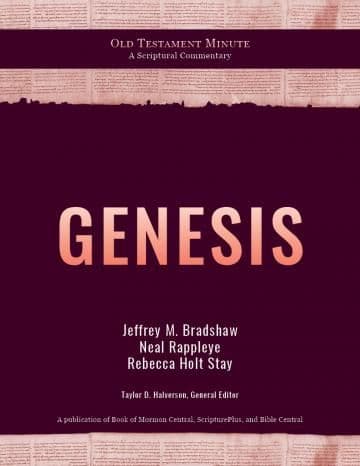Book
32 Chapters

Immediately following Jacob’s divine encounter while crossing the Jabbok (Genesis 32:22–32), “the sun rose upon [Jacob]” (32:31), and “Jacob lifted up his eyes, and looked, and behold Esau came” with four hundred men (33:1). The moment of truth had arrived: how would Esau react to his brother’s return? Jacob likely felt a new confidence and peace of mind after his divine encounter. He stepped forward “and bowed himself to the ground seven times” (verse 3), once again following standard ancient Near Eastern customs of obeisance.[1] The anticipation in the narrative reaches its climax as Esau ran forward, not to attack but to embrace his brother and greet him with a kiss. Both brothers wept in the touching reunion (verse 4).
Esau asked Jacob about his wives and children and the tributes he received the previous day, which he humbly tried to decline (verse 5–9). Jacob alluded back to his experience at the Jabbok River when he said to Esau, “I have seen thy face, as though I had seen the face of God, and thou wast pleased with me” (verse 10). As one scholar has noted, “the encounter with Esau echoes in some way the prior encounter with God. . . . Esau had been gracious in embracing and not killing Jacob and his family. God the wrestler had been gracious in blessing and not killing the weak and defeated Jacob. Now Jacob returns the favor by giving a gift without ulterior motive back to his brother Esau in gratitude for the graciousness that God and Esau have both shown him.”[2]
When insisting that Esau accept his gift, Jacob said, “Take, I pray thee, my blessing that is brought to thee; because God hath dealt graciously with me” (verse 11; emphasis added). In referring to his gift as a blessing (Hebrew berakah), Jacob deliberately echoed the events of Genesis 27, when Jacob, through deception, received the blessing (also berakah) Isaac intended for Esau.[3] Thus, Jacob was doing more than offering tribute to his brother; he was attempting to make restitution for any perceived wrongdoing.
[1] Robert Alter, trans., The Hebrew Bible, 3 vols. (New York, NY: W. W. Norton, 2019), 1:24, note on verse 3.
[2] Dennis T. Olson, “Genesis,” in The New Interpreter’s Bible: One Volume Commentary, ed. Beverly Roberts Gavanta and David Peterson (Nashville, TN: Abingdon Press, 2010), 25.
[3] Olson, “Genesis,” 25.
Book
32 Chapters
Items in the BMC Archive are made publicly available for non-commercial, private use. Inclusion within the BMC Archive does not imply endorsement. Items do not represent the official views of The Church of Jesus Christ of Latter-day Saints or of Book of Mormon Central.